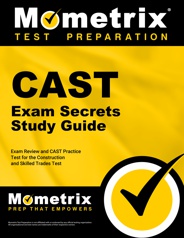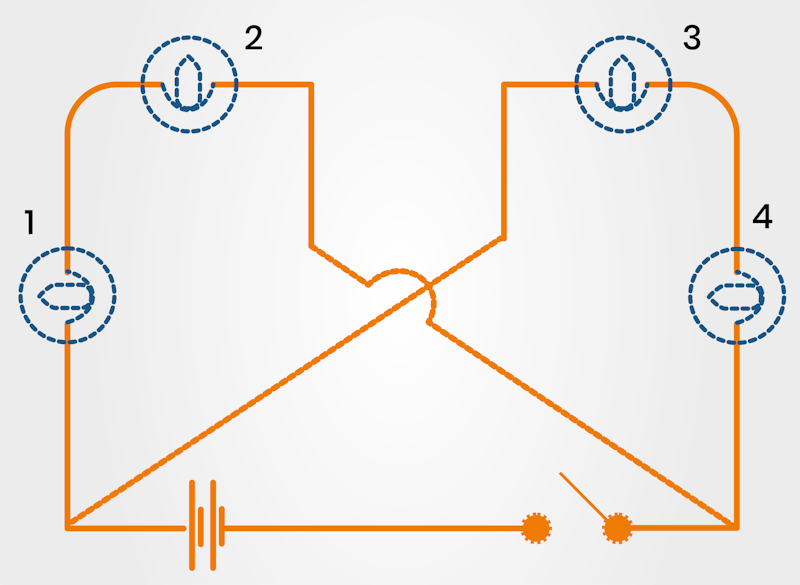What Is Mechanical Reasoning?
- Mechanical Reasoning Study Guide
- Mechanical Reasoning Study Guide
- Mechanical & Electrical Reasoning Study Guide
Mechanical reasoning tests are a type of aptitude or psychometric test administered during the recruitment process for technical jobs.
Merely said, the mechanical reasoning study guide is universally compatible afterward any devices to read. Our comprehensive range of products, services, and resources includes books supplied from more than 15,000 U.S., Canadian, and U.K. Publishers and more. Mechanical Reasoning Study Guide 0 Mechanical Aptitude Test – Home. Tice questions designed to improve your mechanical, spatial,and symbol reasoning abilities.Last,you can take a diagnostic test to practice what you have learned. Regardless of your background, understanding the concepts in this book will benefit you on an exam designed to test your mechanical/spatial abilities. WHAT IS MECHANICAL ABILITY?
They are used to evaluate your ability to understand and apply mechanical concepts to solve problems. Regardless of your job level, the assessment can be difficult to complete in the time allotted.
Practising prior to taking this type of test will help to improve your speed and accuracy when answering the questions you encounter.

During the testing process, you will run into several mechanical scenarios which can include concepts such as acceleration, gravity, friction, pressure, kinetic and potential energy, work and power, etc.
Taking no more than 30 seconds per question will help ensure that you answer each one in a timely manner.
Take Your Free Mechanical Reasoning Test - Our Gift to You
Complete All Questions to See Your Predicted Score
Sample Mechanical Aptitude Test Questions
Being able to understand and apply mechanical concepts is a prerequisite for many industries and jobs.
Below you will find sample questions for this type of test. The best way to pass a mechanical aptitude test is by giving yourself ample time to practise online beforehand.
Question 1
Mechanical Reasoning Study Guide
On which pole does the weight press harder?
- #1
- #2
- The weight presses equally on both poles
The rectangle pivots about the point of contact with the floor. The farther the pole is from the pivot point, the less force it needs to apply to achieve the same torque (the torque needed to keep the rectangle static). Thus Pole 2, the pole farther away from the point of contact with the floor, applies less force on the rectangle. This is essentially the Law of the Lever.
According to Newton's 3rd Law, the rectangle applies less force to Pole 2 as well.

Therefore, the correct answer is 1.
Question 2
What would be the current flowing through point X if another identical power source were to be added in parallel to the circuit?
- Twice as strong
- Half as strong
- There is no difference
Observe how the extra power source was set up: both the positive and negative terminals are connected. Therefore, the same electric potential is kept at each end. In other words, the voltage remains the same. Since the resistors have not been modified, the resistance remains the same as well. Finally, according to Ohm's law (V=IR), the current remains the same.
Trivia: Adding a cell or battery in parallel is usually devised as a form of electrical backup to a circuit, not as a means to change the voltage.
Therefore, the correct answer is 3.
We Help Over 40,000 Job-Seekers Each Year Get A better Score
Complete the Practice You Started to See Results
Within Less Than a Week
What are the Mechanical Skills Under Assessment?
Mechanical reasoning assessments are often used as a prerequisite for employment in many different fields and industries.
These include any position that involves the maintenance, operation and repair of mechanical equipment. The level of difficulty of these tests varies according to the mechanical skills required.
There are many advantages for employers who use these sorts of exams in their recruitment processes. Firstly, your test scores will give insight into your mechanical/ electrical knowledge and capabilities and secondly, give insight into your future job performance.
The main skills under assessment during a mechanical aptitude test include:
Including but not limited to force and moment, gears, wheels and pulleys, hydraulics, velocity and gravity, etc. Your understanding and ability to apply certain mechanical and electrical principles correctly will boost your chances of landing the job you want.
Including but not limited to electrical circuits, symbols, currents, voltages, resistance and more.
Mechanical Reasoning Study Guide
Other psychometric skills under assessment may include:
Spatial reasoning tests are often administered alongside mechanical reasoning tests and measure your ability to manipulate, mentally fold and rotate both 2D and 3D shapes.
An assessment of your basic arithmetic and mathematics skills may be included for some roles. These tests will be administered separately from the mechanical test and may be included during the same testing session.
Abstract reasoning tests help to demonstrate your ability to identify the underlying logic or pattern from a series of images to arrive at a solution. Abstract reasoning is not part of a mechanical reasoning test, however, this sort of test may be administered in the same testing session. How you answer abstract questions will be a good indicator for your employer to understand your level of fluid intelligence and ability to learn new things.
SHL Verify Mechanical Comprehension Test: Most Common Mechanical Test out There
SHL is one of the largest pre-employment test providers worldwide. The Verify Mechanical Comprehension Test is an online, unsupervised aptitude test which SHL administers at the beginning of the assessment process along with other Verify tests.
If you are applying to mechanical or technical positions and are about to be assessed by SHL, odds are you will be required to sit this test.
On the test, you are required to interpret images depicting simple mechanical concepts such as levers, gears and pulleys. The test involves 15 questions to be answered in 10 minutes.
If you pass this test you will be invited to the assessment centre to continue the assessment. You will then be required to sit a supervised Mechanical Comprehension Test to vouch for your initial score.
It is very important to practice in order to increase your chances of getting a chance at the assessment centre. Our All-Inclusive preparation pack includes SHL style questions, answers and explanations.
Major Employers That Use Mechanical Engineering Aptitude Tests
There are hundreds of companies that use mechanical reasoning aptitude tests as part of their selection processes.
Below you will find a list of some of the major companies also using these tests in their employment processes:
| Companies Using Mechanical Reasoning Tests | |||
|---|---|---|---|
| 3M | Amazon | Baker Hughes | BASF |
| Chevron | Coca-Cola | Denso | ExxonMobil |
| Hilton | JLL | Johnson & Johnson | Kellogg's |
| Kraft/ Heinz | Mercedes Benz | Michelin | Nestle |
| PepsiCo | Procter & Gamble | Rio Tinto | Sasol |
| Schlumberger | Shell | Toyota | Unilever |
| Volvo | _ | _ | _ |
Are you looking for a more specific test? Check out our preparation materials for the Bennett Mechanical Test (BMCT) and Ramsay-style tests.
Don't Leave the Preparation to Your Competition
Access 35 Full Practice Tests In 1 All-Inclusive Pack

Continue the Practice You Started Now
Mechanical aptitude tests, or mechanical reasoning tests, are commonly administered for technical and engineering positions. The mechanical aptitude test measures your ability to understand and apply mechanical concepts and principles to solve problems.
Are you likely to need to take a mechanical aptitude test?
Mechanical & Electrical Reasoning Study Guide
Candidates applying for technical and mechanical roles are likely to be asked to complete a mechanical reasoning test. Positions for which a mechanical reasoning test is common include: fire brigade (CFA, MFB), train drivers, trades people, operation and assembly-line workers. The level of difficulty and complexity of the test questions varies according to the required skills.
Mechanical aptitude test example questions
What to expect in your mechanical aptitude test?
- A mechanical aptitude test includes a set of mechanical problems that must be completed in a predefined time.
- The time limit is designed so that only 1% to 5% of the population can correctly solve all the test questions within the allowed timeframe.
- Each test question has only one correct answer.
- Each test question offers you a mechanical scenario that might include acceleration, gravity, friction, pressure, moments, energy transformation, kinetic and potential energy, work and power, levers, pulleys, screws, gears, springs, etc.
- You should expect to have around 30 seconds to complete each test question.
- The level of complexity and difficulty of test questions depends on the position you are applying for. As an example, the test questions for candidates applying for managerial roles will be at a higher level of difficulty and complexity than those for candidates applying for entry-level roles.
Improving your test score on the mechanical aptitude test can be achieved through developing simple factors to solve test problems, such as the right techniques and frameworks.
How we prepare you for your mechanical aptitude test
IPC’s online practice mechanical reasoning aptitude tests:
- The largest pool of mechanical aptitude test questions.
- All test questions and answers are developed by experienced psychometric test writers.
- Immediate full test reports that include your total score, a list of your correct and incorrect answers, and detailed explanations of answers. This ensures you quickly recognise your strengths and the areas that need improvement.
- Immediate and practical recommendations on how to improve your outcome.
- Effective solutions to train your mind to quickly recognise patterns and correctly solve problems.
IPC’s onlinemechanical aptitude test courses:
- Know the do’s and don’t’s of the mechanical aptitude test.
- All course material is developed by experienced test writers.
- Learn effective aptitude test-taking strategies to ensure you answer more questions in the given time.
- Understand how to prepare for your mechanical aptitude test.
- View example mechanical aptitude test questions and learn how to solve each one.
IPC’s personal coaching:
- One-on-one coaching with an IPC psychologist to ensure you improve your scores.
- Get an expert to tell you your relevant strengths and weaknesses.
- Receive personal guidance on how to improve your aptitude test-taking skills.
- Coaching is delivered over the telephone and outside of business hours to ensure you get the most from your coaching.

IPC’s preparation services work:
- All our preparation material is written by experienced Australian psychologists and psychometric test developers.
- Contrary to what is commonly believed, you can prepare for your aptitude test and significantly improve your test score. We have worked with over 200,000 satisfied customers who improved their aptitude test scores.
- We don’t just give you any aptitude test to complete – we ensure it fits the level of difficulty you’ll find in your real test
- We don’t just offer you a list of aptitude test questions (which is NOT an effective preparation strategy), but we give you detailed answer explanations to ensure that you learn the right problem-solving techniques.